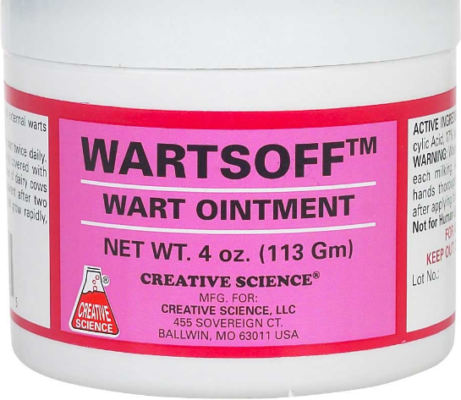Covid in your dreams, the cost of kissing frogs, new(ish) aspirin advice, and more
28 Apr 2022
Posted by Andrew Kantor
Witches skew the results
If, like many of us, you woke up this morning wondering “How much do Americans spend on wart treatment every year?” worry no longer. HealthDay has you covered. (Spoiler: about $846 million for cutaneous warts, per a study in JAMA Dermatology.)
Details matter
“Most Americans have had Covid” reads the headlines. That’s technically true — based on CDC’s data — but by “most” they don’t mean 80% or 90%. They mean just under 58%.
Sour dreams
If you find yourself running naked through your high school, late for an exam, being chased by a faceless person on a flaming bicycle … you might be recovering from Covid-19.
Apparently more-frequent nightmares are fairly common for people who’ve had Covid — in fact, it’s a lot like what people with anxiety, depression, and PTSD experience, according to a study out of Italy based on international sleep data.
The so-called ‘pandemic dreams’ have provided a unique window on the psychological and physiological effects of the pandemic. We increased our rate of dream recall, our lucid dreams, and above all, our nightmares. These changes have been observed without in different countries and in different periods of the pandemic.”
[I was going to include an image of “nightmare” here, but honestly they’re way too creepy.]
Reaching out to students
Check it out: The Georgia Pharmacy Foundation sponsored a “lunch-and-learn” for UGA College of Pharmacy students with GPhA past president Lance Boles and financial advisor Mike Tarrant.

Surrounding the College of Pharmacy’s beloved mascot, Apoochecary, are (l-r) UGA’s Lee Snelling; Mike Tarrant; UGA students Samantha Sharpe, Kristen DiSalle, Alana Holliman, and Valery Cepeda; UGA’s Lindsey Welch; GPhA’s Lance Boles; and UGA’s Kim Hamby.
ICYMI
No aspirin necessary … sort of
The latest from the U.S. Preventive Services Task Force says that the risk of bleeding from low-dose aspirin outweighs the benefit — at least for people without cardiovascular disease.
These are government recommendations, so by tradition they have to be overly complicated:
- Adults 60 or older “with greater than a 15% or 20% risk for developing cardiovascular disease over a 10-year period”: Probably a good idea … if your doctor agrees.
- Adults 60 or older with only 10% to 15% chance of CV disease: It’s up to you, unless you have a higher risk of bleeding.
- Adults 60 and older without risk of CV disease: Don’t bother with aspirin … unless you’re already taking it.
- Adults 40 to 59 with “a 10% or higher risk of developing heart disease in a 10-year period”: Yeah, sure, there’s some benefit to low-dose aspirin. Talk to your doctor.
Lyme vaccine update
Development of Pfizer’s next-gen Lyme disease vaccine continues apace. Phase 3 trials should begin later this year. (Originally the company said it worked better in adults, but now it says it works better in children.)
Accupril recall
Pfizer is recalling five lots of Accupril tablets due to the presence of N-nitroso-quinapril, a carcinogen. You can see the affected NDCs on the FDA’s recall page.
Note: This is not the same as last month, when the company recalled Accuretic for the same reason. Nor is it the same as its recall of Chantix last summer … also for that same reason.
Latest Covid treatments
St. John’s wort
…aka Hypericum perforatum. German researchers found that a dried extract of the main ingredients of the plant not only killed the virus, but worked against all the known variants.
Hypericum perforatum and its ingredients, hypericin and pseudohypericin, act strongly antiviral against SARS-CoV-2 and several emerged variants. The blockade of virus propagation predominantly occurs at the very early stage of infection, presumably even at the level of interference with the virus particles, indicating a virucidal activity.
Red sage
Sometimes called “danshen,” or “Chinese sage,” it’s an herb used in traditional Chinese medicine — and, according to Belgian researchers, it can prevent the SARS-CoV-2 virus from binding to cells.
But they go a little further, saying that not only might it help prevent infection, but it might also be useful “on the inflammatory response occurring later.”
[T]he extract may be as effective [as] the current reference treatment of the disease, namely corticosteroids (in particular, dexamethasone).
Weird science
This is your brain on high-powered microwaves
The hobo with the tinfoil hat was right after all: Microwaves can cause brain damage.
But (say U.S. Army and Texas A&M researchers) they have to be really high power — “orders of magnitude larger than most real-world exposure.”
At those high powers…
“The microwave heating causes spatially varying, rapid thermal expansion, which then induces mechanical waves that propagate through the brain, like ripples in a pond.”
Then there’s this
O Canada
Learn to love maple syrup, hockey, apologizing, and mispronouncing “about”: Tim Horton’s is coming to Georgia.




